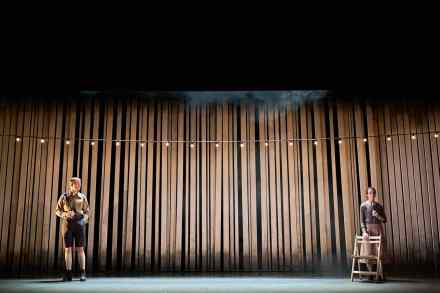Gripping slice of old-fashioned entertainment: Old Vic's Camp Siegfried reviewed
Boy meets girl. Girl gets pregnant. Then the entire world collapses. That’s the story of Camp Siegfried, which is set in the late 1930s at a holiday park in Long Island where German-Americans come to enjoy the outdoor life and to celebrate their ancestral culture. The boy is a strapping 17-year-old who chats up an awkward geeky girl with little sexual experience. Or so it seems. The boy is keen on Germany’s dynamic new chancellor but the girl finds Hitler too ‘excitable’. But when she’s invited to give a speech to the entire camp, she becomes an overnight convert and extolls the Nazi virtues of unity and patriotism. And she’s




















